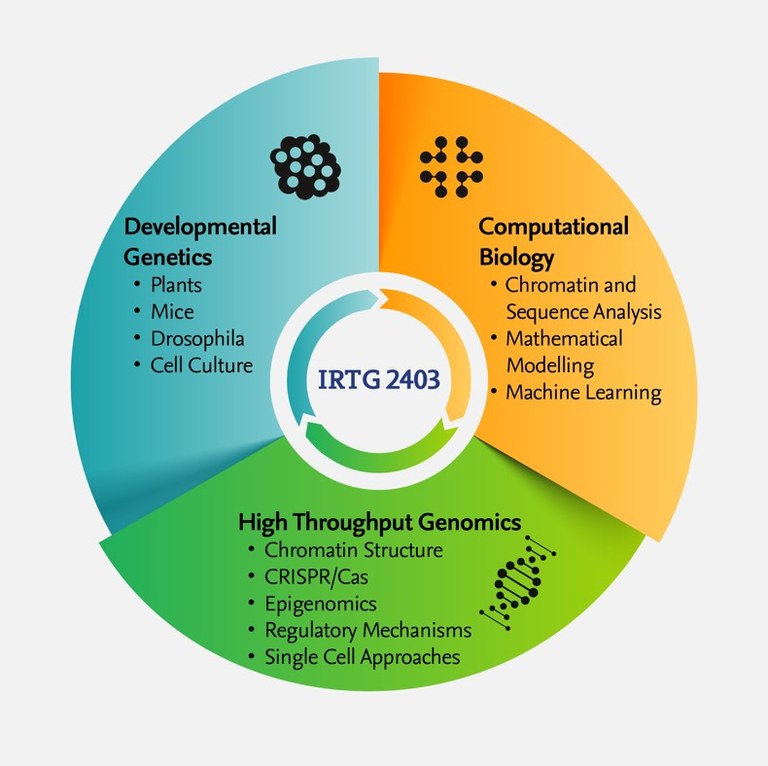Research
 Complex developmental processes enable an organism to differentiate a multitude of cell types from one genome, and they are encoded in intricate gene regulatory mechanisms. The completion of the human genome provided a starting point for deciphering the code that controls gene regulation, from its context in three-dimensional chromosome folding to how specific transcription factors act, and finally, to its product as RNA or protein.
Complex developmental processes enable an organism to differentiate a multitude of cell types from one genome, and they are encoded in intricate gene regulatory mechanisms. The completion of the human genome provided a starting point for deciphering the code that controls gene regulation, from its context in three-dimensional chromosome folding to how specific transcription factors act, and finally, to its product as RNA or protein.
In an alliance between Berlin institutions (led by Humboldt Universität zu Berlin) and Duke University, we aim to teach the next generation of researchers a quantitative understanding of genome function and gene regulation within the context of biological systems.
Combining experimental and computational approaches, we provide opportunities for PhD students to work in three complementary areas:
- High-throughput genomics and editing
- Computational biology and machine learning
- Developmental systems biology
Doctoral researchers obtain a significant amount of their training at the partner institution, thereby benefitting from the synergy and expertise at both sites. They are co-advised by computational and biological experts from both sides of the Atlantic throughout their training. A customized program, coordinated by the graduate school of the Integrative Research Institute for the Life Sciences (IRI Life Sciences), supports the students in bridging the three emphasis areas and acquiring critical skills to prepare them for future careers at the cutting edge of academia and industry.
